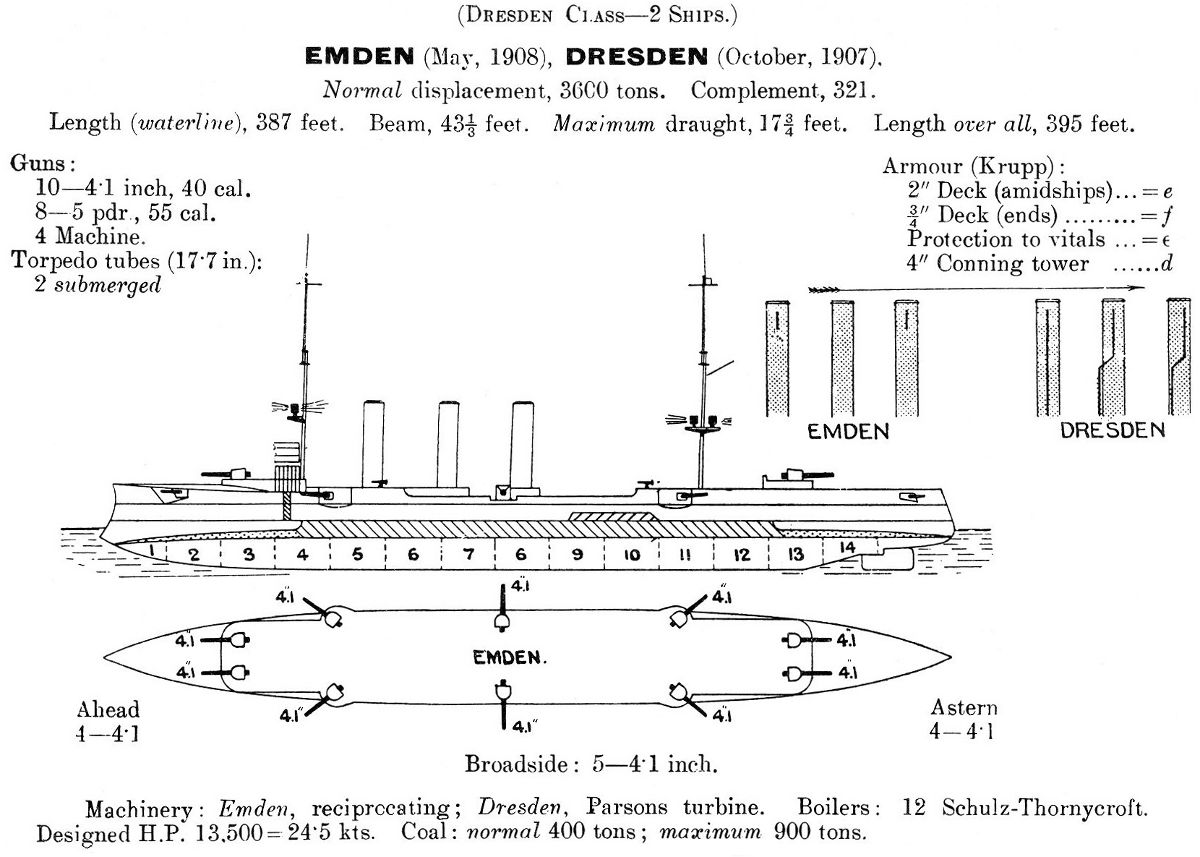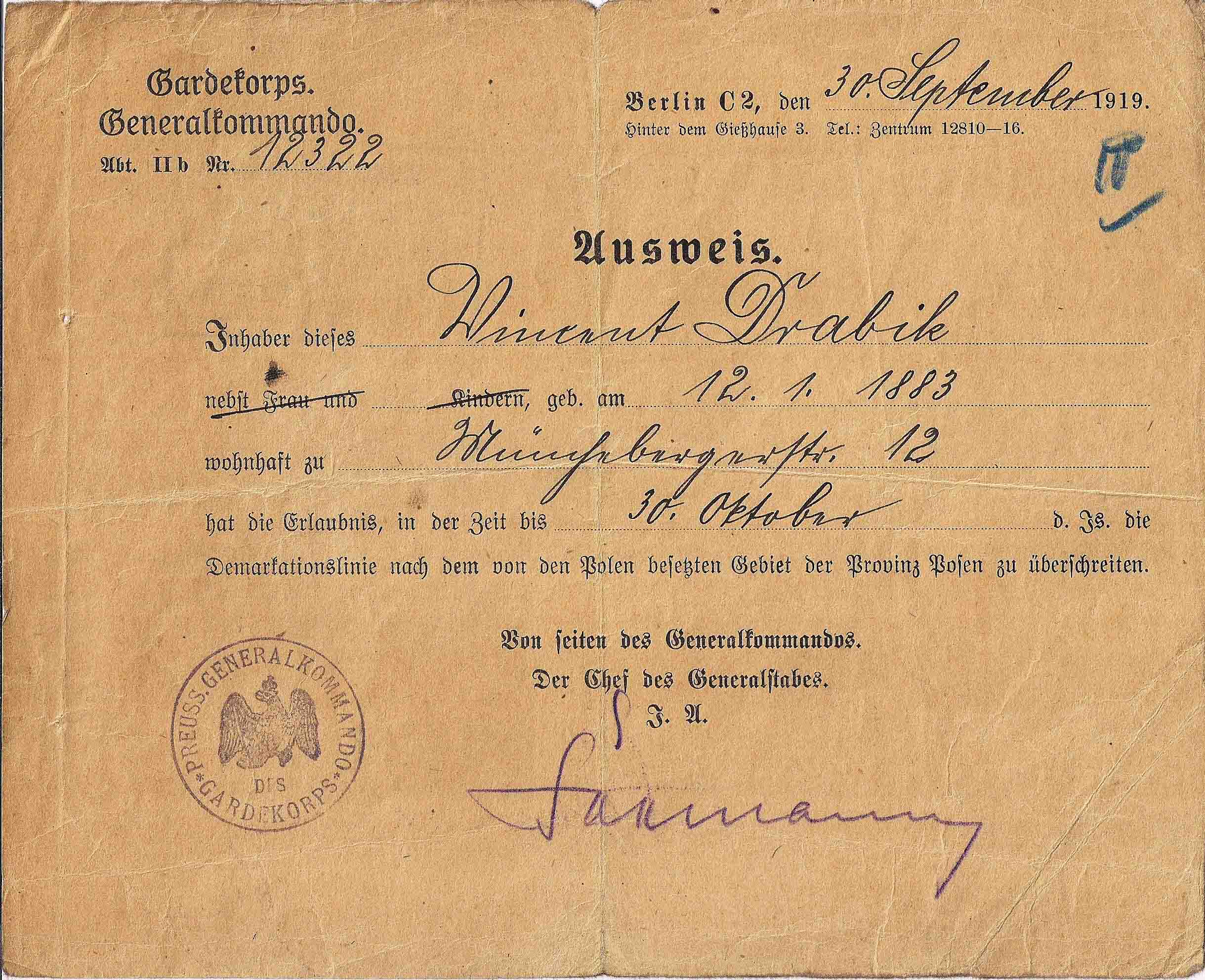|
Lothar Witzke
Lothar Witzke (May 15, 1895 – January 6, 1962) was a junior officer in the German Imperial Navy, who, after escaping from internment in neutral Chile, became a spy and saboteur on active service in the United States and Mexico during the First World War. Arrested in 1918, he was sentenced to death, but his life was saved by the Armistice of 11 November 1918. In 1923 he was pardoned and released. During the Second World War he served in the Abwehr and after the war became a German Party member of the Hamburg Parliament. Naval career Born in Kreis Koschmin, in the Province of Posen, Witzke was educated at Posen Academy and then entered the German Naval Academy as a seventeen-year-old cadet. By the beginning of the First World War he was a lieutenant in the Imperial German Navy on the light cruiser SMS ''Dresden''. After many months of excitement, during which the ''Dresden'' played havoc with Allied shipping and hid from British warships, she was eventually caught and sunk. Wi ... [...More Info...] [...Related Items...] OR: [Wikipedia] [Google] [Baidu] |
Kreis Koschmin
Kreis Koschmin ( pl, Powiat Koźmiński) was a district in Posen (region), Regierungsbezirk Posen, in the Prussian Province of Posen from 1887 to 1919. Today, the territory of this district lies in the southern part of the Greater Poland Voivodeship in Poland. History On October 1, 1887, the ''Koschmin district was formed from the northern part of the'' Kreis Krotoschin, Krotoschin district. The town of Koźmin Wielkopolski, Koschmin was the district capital. On December 27, 1918, the Greater Poland uprising (1918–19), Greater Poland uprising began in the province of Posen, and by January 2, 1919, the town of Koschmin was under Polish control. On February 16, 1919, an armistice ended the Polish-German fighting. With the signing of the Treaty of Versailles on June 28, 1919, the Weimar Republic, German government officially ceded the Koschmin district to the newly founded Second Polish Republic. Demographics According to the Prussian census of 1910, Kreis Koschmin had a popula ... [...More Info...] [...Related Items...] OR: [Wikipedia] [Google] [Baidu] |
Mexico
Mexico (Spanish: México), officially the United Mexican States, is a country in the southern portion of North America. It is bordered to the north by the United States; to the south and west by the Pacific Ocean; to the southeast by Guatemala, Belize, and the Caribbean Sea; and to the east by the Gulf of Mexico. Mexico covers ,Mexico ''''. . making it the world's 13th-largest country by are ... [...More Info...] [...Related Items...] OR: [Wikipedia] [Google] [Baidu] |
Franz Bopp
Franz Bopp (; 14 September 1791 – 23 October 1867) was a German linguist known for extensive and pioneering comparative work on Indo-European languages. Early life Bopp was born in Mainz, but the political disarray in the Republic of Mainz caused his parents' move to Aschaffenburg, the second seat of the Archbishop of Mainz. There he received a liberal education at the Lyceum and Karl Joseph Hieronymus Windischmann drew his attention to the languages and literature of the East. (Windischmann, along with Georg Friedrich Creuzer, Joseph Görres, and the brothers Schlegel, expressed great enthusiasm for Indian wisdom and philosophy.) Moreover, Karl Wilhelm Friedrich von Schlegel's book, ''Über die Sprache und Weisheit der Indier'' (''On the Speech and Wisdom of the Indians'', Heidelberg, 1808), had just begun to exert a powerful influence on the minds of German philosophers and historians, and stimulated Bopp's interest in the sacred language of the Hindus. Career In 1812, ... [...More Info...] [...Related Items...] OR: [Wikipedia] [Google] [Baidu] |
California
California is a U.S. state, state in the Western United States, located along the West Coast of the United States, Pacific Coast. With nearly 39.2million residents across a total area of approximately , it is the List of states and territories of the United States by population, most populous U.S. state and the List of U.S. states and territories by area, 3rd largest by area. It is also the most populated Administrative division, subnational entity in North America and the 34th most populous in the world. The Greater Los Angeles area and the San Francisco Bay Area are the nation's second and fifth most populous Statistical area (United States), urban regions respectively, with the former having more than 18.7million residents and the latter having over 9.6million. Sacramento, California, Sacramento is the state's capital, while Los Angeles is the List of largest California cities by population, most populous city in the state and the List of United States cities by population, ... [...More Info...] [...Related Items...] OR: [Wikipedia] [Google] [Baidu] |
SS ''Calusa''
SS is an abbreviation for ''Schutzstaffel'', a paramilitary organisation in Nazi Germany. SS, Ss, or similar may also refer to: Places *Guangdong Experimental High School (''Sheng Shi'' or ''Saang Sat''), China *Province of Sassari, Italy (vehicle plate code) *South Sudan (ISO 3166-1 code SS) *SS postcode area, UK, around Southend-on-Sea * San Sebastián, Spanish city Arts, entertainment, and media *SS (band), an early Japanese hardcore punk band * ''SS'' (manga), a Japanese comic 2000-2003 *SS Entertainment, a Korean entertainment company *''S.S.'', for Sosthenes Smith, H. G. Wells pseudonym for story ''A Vision of the Past'' *SS, the production code for the 1968 ''Doctor Who'' serial ''The Wheel in Space'' *''Sesame Street'', American kids' TV show Language * Ss (digraph) used in Pinyin * ß or ss, a German-language ligature * switch-reference in linguistics *''Scilicet'', used as a section sign * (''in the strict sense'') in Latin * Swazi language (ISO 639-1 code "ss") Sci ... [...More Info...] [...Related Items...] OR: [Wikipedia] [Google] [Baidu] |
San Francisco
San Francisco (; Spanish language, Spanish for "Francis of Assisi, Saint Francis"), officially the City and County of San Francisco, is the commercial, financial, and cultural center of Northern California. The city proper is the List of California cities by population, fourth most populous in California and List of United States cities by population, 17th most populous in the United States, with 815,201 residents as of 2021. It covers a land area of , at the end of the San Francisco Peninsula, making it the second most densely populated large U.S. city after New York City, and the County statistics of the United States, fifth most densely populated U.S. county, behind only four of the five New York City boroughs. Among the 91 U.S. cities proper with over 250,000 residents, San Francisco was ranked first by per capita income (at $160,749) and sixth by aggregate income as of 2021. Colloquial nicknames for San Francisco include ''SF'', ''San Fran'', ''The '', ''Frisco'', and '' ... [...More Info...] [...Related Items...] OR: [Wikipedia] [Google] [Baidu] |
SMS Dresden (1907)
SMS ''Dresden'' ("His Majesty's Ship ''Dresden''") was a German light cruiser built for the ''Kaiserliche Marine'' (Imperial Navy). The lead ship of her class, she was laid down at the Blohm & Voss shipyard in Hamburg in 1906, launched in October 1907, and completed in November 1908. Her entrance into service was delayed by accidents during sea trials, including a collision with another vessel which necessitated major repairs. Like the preceding cruisers upon which her design was based, ''Dresden'' was armed with ten SK L/40 guns and two torpedo tubes. ''Dresden'' spent much of her career overseas. After commissioning, she visited the United States in 1909 during the Hudson–Fulton Celebration, before returning to Germany to serve in the reconnaissance force of the High Seas Fleet for three years. In 1913, she was assigned to the Mediterranean Division. She was then sent to the Caribbean to protect German nationals during the Mexican Revolution. In mid-1914, she carried ... [...More Info...] [...Related Items...] OR: [Wikipedia] [Google] [Baidu] |
Imperial German Navy
The Imperial German Navy or the Imperial Navy () was the navy of the German Empire, which existed between 1871 and 1919. It grew out of the small Prussian Navy (from 1867 the North German Federal Navy), which was mainly for coast defence. Wilhelm II, German Emperor, Kaiser Wilhelm II greatly expanded the navy. The key leader was Admiral Alfred von Tirpitz, who greatly expanded the size and quality of the navy, while adopting the sea power theories of American strategist Alfred Thayer Mahan. The result was a Anglo-German naval arms race, naval arms race with Britain, as the German navy grew to become one of the greatest maritime forces in the world, second only to the Royal Navy. The German surface navy proved ineffective during the First World War; its only major engagement, the Battle of Jutland, was a draw, but it kept the surface fleet largely in port for the rest of the war. The submarine fleet was greatly expanded and threatened the British supply system during the Atlantic ... [...More Info...] [...Related Items...] OR: [Wikipedia] [Google] [Baidu] |
Province Of Posen
The Province of Posen (german: Provinz Posen, pl, Prowincja Poznańska) was a province of the Kingdom of Prussia from 1848 to 1920. Posen was established in 1848 following the Greater Poland Uprising as a successor to the Grand Duchy of Posen, which in turn was annexed by Prussia in 1815 from Napoleon's Duchy of Warsaw. It became part of the German Empire in 1871. After World War I, Posen was briefly part of the Free State of Prussia within Weimar Germany, but was dissolved in 1920 when most of its territory was ceded to the Second Polish Republic by the Treaty of Versailles, and the remaining German territory was later re-organized into Posen-West Prussia in 1922. Posen (present-day Poznań, Poland) was the provincial capital. Geography The land is mostly flat, drained by two major watershed systems; the Noteć (German: ''Netze'') in the north and the Warta (''Warthe'') in the center. Ice Age glaciers left moraine deposits and the land is speckled with hundreds of "finger l ... [...More Info...] [...Related Items...] OR: [Wikipedia] [Google] [Baidu] |
Hamburg Parliament
The Hamburg Parliament (german: Hamburgische Bürgerschaft; literally “Hamburgish Citizenry”) is the unicameral legislature of the German state of Hamburg according to the constitution of Hamburg. As of 2011 there were 121 members in the parliament, representing a relatively equal amount of constituencies. The parliament is situated in the city hall Hamburg Rathaus and is part of the Government of Hamburg. The parliament is among other things responsible for the law, the election of the ''Erster Bürgermeister'' ( First Mayor) for the election period and the control of the Senate ( cabinet). The President of the Hamburg Parliament is the highest official person of the Free and Hanseatic City of Hamburg. The 121 members are elected in universal, direct, free, equal and secret elections every five years. History Origins ''Bürgerschaft'' (literally citizenry) is a term in use since the Middle Ages to refer to the male inhabitants of Hamburg with citizenship. A committee o ... [...More Info...] [...Related Items...] OR: [Wikipedia] [Google] [Baidu] |
German Party (1947)
The German Party (german: Deutsche Partei, DP) was a National conservatism, national-conservative List of historical political parties in Germany, political party in West Germany active during the post-World War II, war years. The party's ideology appealed to sentiments of German nationalism and nostalgia for the German Empire. History Founding In 1945 the Lower Saxony National Party (''Niedersächsische Landespartei'', NLP) was founded as a re-creation of the Regionalism (politics), regionalist German-Hanoverian Party that had been active in the period between the creation of the German Empire in 1871 and the Nazi Party's seizure of power in 1933. Two groups of people initiated the process: one around Ludwig Alpers and Heinrich Hellwege in Stade, the other around Georg Ludewig, Karl Biester, Wolfgang Kwiecinski, and Arthur Menge in Hanover. On May 23, 1946 Heinrich Hellwege, ''Landrat'' in Stade, was formally elected to serve as chairman of the NLP. The NLP aimed principally at ... [...More Info...] [...Related Items...] OR: [Wikipedia] [Google] [Baidu] |



